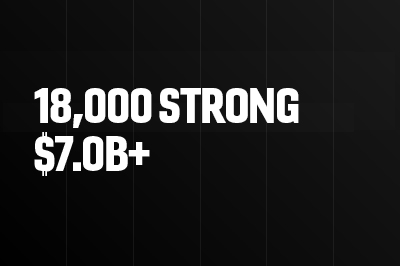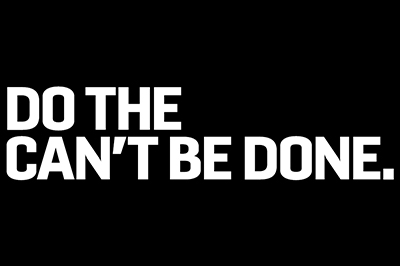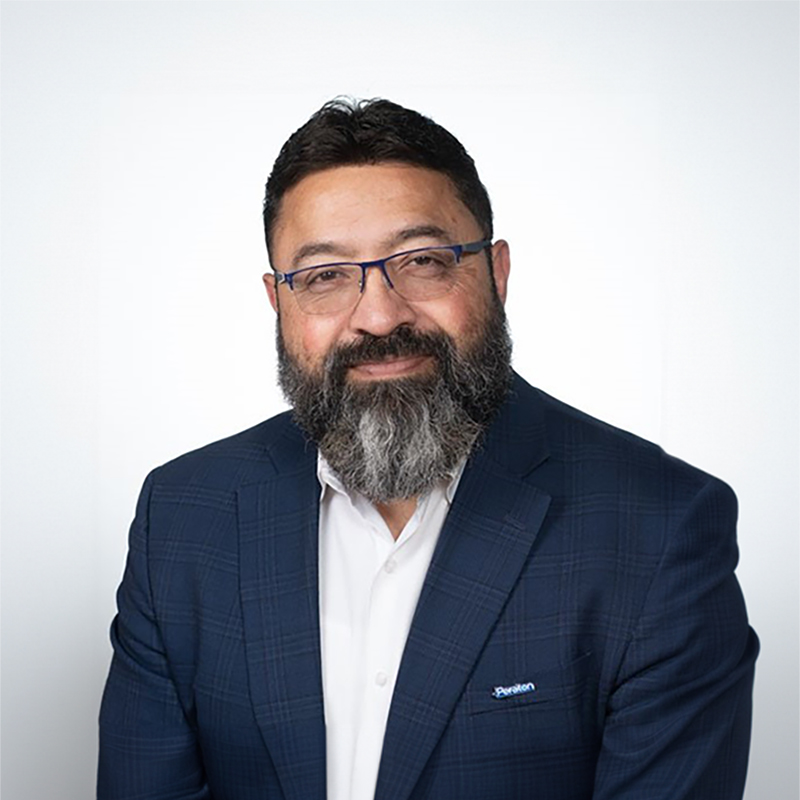To celebrate National Hispanic Heritage Month, we interviewed Vice President and General Manager of the Cyber Intelligence Systems Business Unit, Frankie Velez, whose Puerto Rican heritage and unique life experiences have shaped him into the industry expert and worldclass leader that he is today.
Let’s talk a little bit about where your journey began, what your early career looked like, and what you’ve carried with you from those earlier times?
I’ll start by saying that my background is of Puerto Rican and Italian descent. I am Hispanic. My parents were Puerto Rican, so when you take the heritage of Puerto Rico, which is a melting pot of cultures and races that yield a diverse group of people rich in varying cultures. I have family that came from Spain, Italy, Cuba, as well as family that was Native American. Me personally, I was born in New Britain, Connecticut, just outside of Hartford, and in the little area that today is called Barrio Latino. I grew up in that area until I was seven years old or so, when my parents decided to move back to Puerto Rico, not only because a lot of our family still resided there, but also because they wanted me to experience life on the island.
In Puerto Rico, I grew up by the beach, and I loved that, but what really mattered to my parents, specifically to my mom, was my education. This belief led them to instill in me that grades and performance in school mattered and that putting my best foot forward and best effort in school was very important. Because this was instilled in me early in my life, that kept me honest and out of trouble. It kept me doing the right things as I was growing up and eventually led to me receiving two academic scholarships, one from the University of Puerto Rico and one from Princeton University. A lot of people have asked me why I chose UPR and not Princeton, but for me it was about staying near my parents and in a safe space where I had lived for the last decade.
In my academic journey, I was accepted into one of the first programs the University of Puerto Rico had developed in computer science. At the time, I had no idea what a computer was, but the course used a Commodore 64, and the experience turned out to be very challenging but interesting. Eventually, I decided to join the Navy. I chose the Navy because it gave me the greatest opportunity to travel and because of my grades and academic standing, it qualified me for a high-tech program at the time known as “Classic Wizard.” I was around 17 years old when I went to Navy boot camp and followed that with Navy cryptologic training schools which led me into the Intel world. The rest is history.
Pivoting into the defense contractor industry, coming in as a Navy veteran, can you share what lessons learned along the way? What experiences really stick out, specifically in regard to your Hispanic heritage?
I think the military most certainly prepared me for success. Going into the military, taught me to adapt for several reasons. First, there weren’t a lot of people like me at the places I was stationed. There just weren’t a lot of Hispanics. This often made me feel isolated, but through it all, I also learned how to embrace my heritage. I learned how to use my unique background to succeed as an independent thinker who could add value to the organizations that employed me. In the military, you sort of have to start over every four years because your job changes when you change commands. Every time you go to a new command, you have to prove yourself all over again. So that taught a lesson in being flexible and being dynamic and understanding how to adapt to different organizations, different missions, different requirements. I constantly ask myself questions like “How do maintain open communications? How do I succeed? How do I inject myself to add value without being disruptive to the mission or team?”
For the 15 years I served while on active duty, I served on tours where I experienced some unique opportunities that required me to make my own decisions on operations that had national impact. This type of situation is a different animal and very stressful because you don’t know if you’re decisions can have a ripple effect on live operations, and you are not always fully certain if the choices and decisions you are making are the right ones. However, you must be decisive and own what you do. Gaining confidence was key and I was lucky because I befriended leaders who helped me understand that my individuality had value, and that I could make an impact, even when I was in a room with 15 other people where I was the only one who looked different. So, it was the leadership skills I learned along the way and excellent mentorship from great leaders in the military that helped me find my confidence and taught me how to embrace my unique background and Hispanic heritage.
We talked eight months ago when you had joined Peraton as VP of Strategy. Just recently, you became the VP/GM for Cyber Intelligence Systems Business Unit. As an executive, what skills do you find to be the most valuable, and what advice would you give someone who aspires to be in your chair one day?
I don’t want to sound too cliché, but the first and foremost thing I always like to make sure people understand is that communication, transparency, and honesty are all really important. These are the things that I’ve learned to use as a leader and I that I like to see in other people. Genuineness is also important because it creates trust. So up and down the chain, I like to make sure that those character traits exists because they’re such a big part of succeeding.
Another thing that I learned through my military career, and I always share with people, is just being persistent. You can’t take no for an answer, but you also have to understand when you fail so that you can use those moments as learning experiences. So, keep persistent and when bad things happen, don’t let those moments define you. Because bad things are going to happen, right? We’re all human and we all make mistakes. Above all else, don’t be afraid to ask questions.
I know that leadership is a topic that is very near and dear to your heart, so could you share anything about your leadership style and how you use those qualities to drive better outcomes for both Peraton and our customers?
First and foremost, I have to acknowledge that we are very fortunate to work for a company such as Peraton, which is driven by such a great mission. I’m very excited about what the future brings, not only for me, but for Peraton, its workforce, and Peraton customers. Regarding leadership, one of my mentors taught me the importance of leadership and to strive to be the best leader that you can be. They asked me “what do you want to do? What keeps you coming back to work? What do you want to be known for?” and that last question got me. I didn’t have an answer for a long time. But when I gave it some serious thought, I realized that if today was my last day on earth and those that I touched were able to say that I was a good leader, a great leader, or the leader that maybe impacted or changed their life, I’d be happy.
I’ve worked on my leadership skills for a long time, and I think that empathy is one of the things that I learned can be impactful in leadership. This helped me understand the importance of patience and understanding. I get the most out of leadership when I’m helping and mentoring others. Helping others reach a new level of success fills a satisfaction void I never knew existed. This also teaches me a lot about myself. It really warms my heart when I know I am helping others and I really do hope that this comes across because it is a strong passion of mine. Another strong lesson learned is that you can’t run a business without people. Your employees are the most valuable resource we have and if we don’t believe it, then we won’t live it. The reality is that if you take care of your people, they’ll help you take care of the mission.






